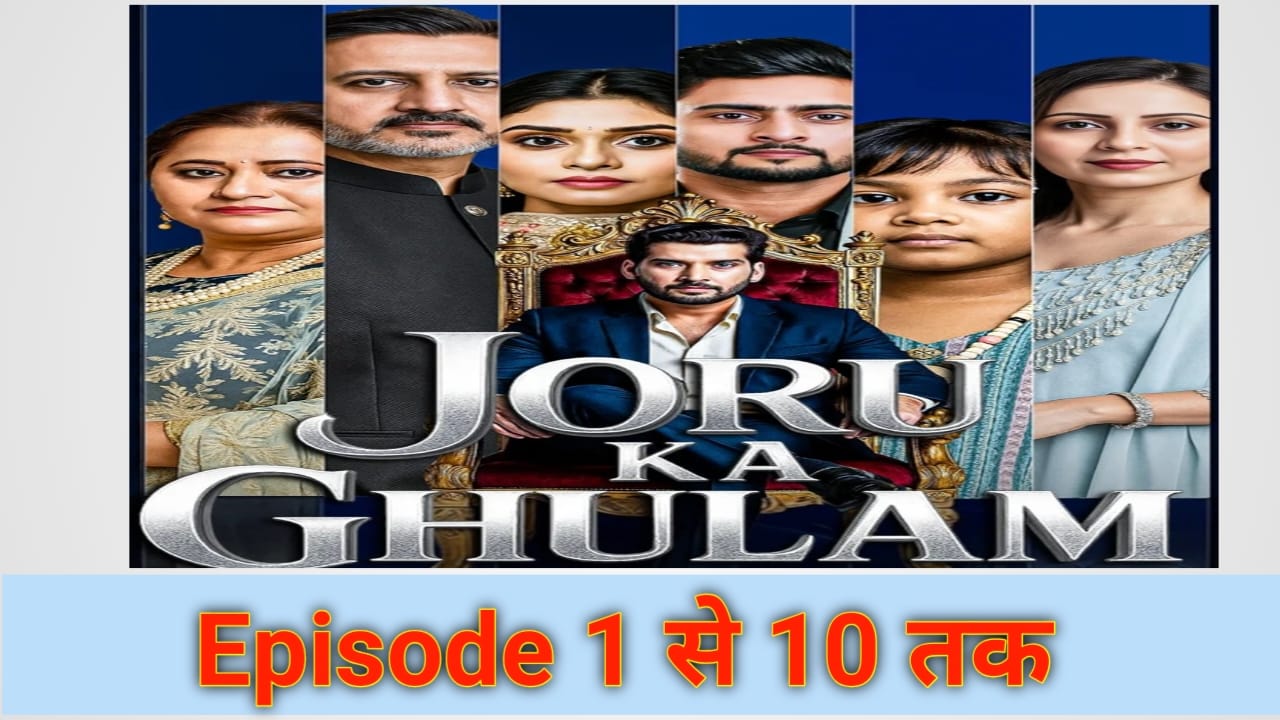As Joru Ka Ghulam moves forward, the story becomes more layered, shifting from mere comedy into something deeply relatable. The husband’s life begins to feel like a seesaw—one side filled with his wife’s bright dreams, the other weighed down by his responsibilities and financial burdens. The humor remains, but beneath the laughs, viewers start sensing the subtle tension every middle-class household experiences.
The Growing Conflict
The wife continues to demand small luxuries—an upgraded kitchen appliance, designer clothes, or weekend getaways. Each request seems harmless on its own, but together, they put immense pressure on the husband. He juggles bills, saves pennies, and even considers borrowing money to keep up with expectations.
Here lies the heart of the conflict:
-
The wife represents aspiration—the desire to enjoy life in the present.
-
The husband represents security—the urge to prepare for tomorrow.
Neither is wrong, but their inability to meet in the middle creates endless comic tension. A simple shopping trip turns into a hilarious argument about whether they need a new sofa or should save money for emergencies.
Everyday Struggles Turn Symbolic
The brilliance of Joru Ka Ghulam is that it uses small, everyday incidents to highlight big truths. Take, for example, an episode where the wife insists on buying a new car. She dreams of comfort, pride, and the joy of arriving in style. The husband, on the other hand, worries about installments, rising fuel costs, and maintenance.
This car argument becomes a perfect metaphor for car insurance in real life.
-
For the wife, the car is freedom.
-
For the husband, it is liability.
-
And the truth? Both are right. A car is an asset, but without proper insurance, one accident could turn it into a financial nightmare.
The show doesn’t preach this directly, but audiences can’t miss the lesson. Just as the couple debates about buying the car, real families must debate about protecting their assets. The comedy masks a crucial reminder: joy is short-lived if security is ignored.
The Burden of Borrowing
Another recurring element in the story is the husband’s secret struggles with money. To meet his wife’s demands and keep her happy, he sometimes takes personal loans. But instead of telling her the truth, he hides it, believing it’s his duty to provide at any cost.
This subplot is both emotional and eye-opening. Many viewers relate to the silent stress of debt. Loans are not evil—they help us fulfill dreams, whether it’s buying a car, funding education, or covering emergencies. But when loans are taken without planning, they turn into chains.
The husband’s quiet suffering is a metaphor for the double-edged nature of personal loans:
-
When used wisely, they are tools of empowerment.
-
When taken recklessly, they become sources of tension.
The comedy of Joru Ka Ghulam often comes from his desperate attempts to hide the truth from his wife. Whether it’s dodging calls from the bank or inventing excuses for late nights at work, his struggles bring laughter. Yet, beneath the fun, the audience sees the reality of financial pressure.
Emotional Depth Behind the Comedy
What makes these conflicts so engaging is how real they feel. Almost every family has faced similar conversations—about buying a new gadget, upgrading a lifestyle, or taking on debt. The husband’s reluctance isn’t stinginess; it’s caution born from love. The wife’s insistence isn’t selfishness; it’s her desire to live life fully.
The show cleverly uses humor to soften these arguments, but it doesn’t erase the truth. Every joke about “joru ka ghulam” carries a whisper of reality—being a good partner is not just about obedience, it’s about protecting the foundation of the relationship.
The Financial Metaphors That Shine Through
-
Car Insurance: Just like the couple’s arguments about buying a car, viewers are reminded that owning assets is meaningless if they’re not protected. A shiny vehicle can turn into a burden without the safety net of insurance.
-
Personal Loans: The husband’s hidden debts highlight the fine line between fulfilling dreams and inviting stress. Loans, like love, require honesty and planning.

The Bigger Picture
By this point in the series, viewers realize that Joru Ka Ghulam is not about weakness or blind submission. Instead, it is about the quiet strength required to carry responsibilities without complaint. The husband is not a fool—he is a man trying to hold his family together in a world that constantly demands more.
The wife, though sometimes demanding, is also relatable. Who doesn’t want comfort, excitement, and new experiences? She becomes the voice of temptation, reminding audiences that life is not only about saving—it is also about living.
Why Page 2 Matters
This phase of the story shifts the focus from surface-level comedy to meaningful exploration of balance. It challenges viewers to reflect:
-
Are we chasing dreams at the cost of debt?
-
Are we ignoring protection while running after luxury?
-
Are we honest with our partners about financial struggles?
These questions linger even after the laughter fades. That is the true strength of Joru Ka Ghulam—it entertains while teaching lessons that matter.
